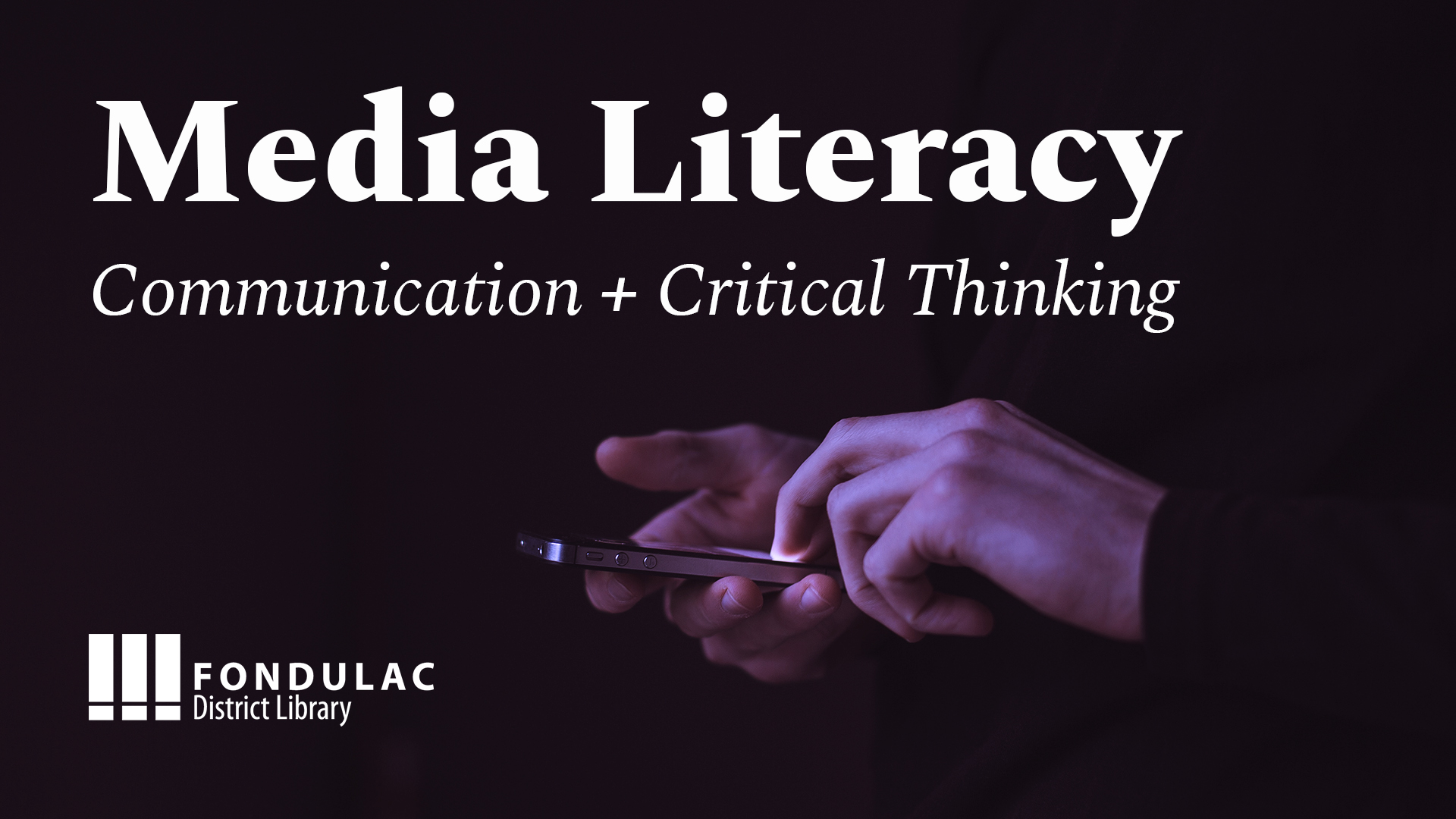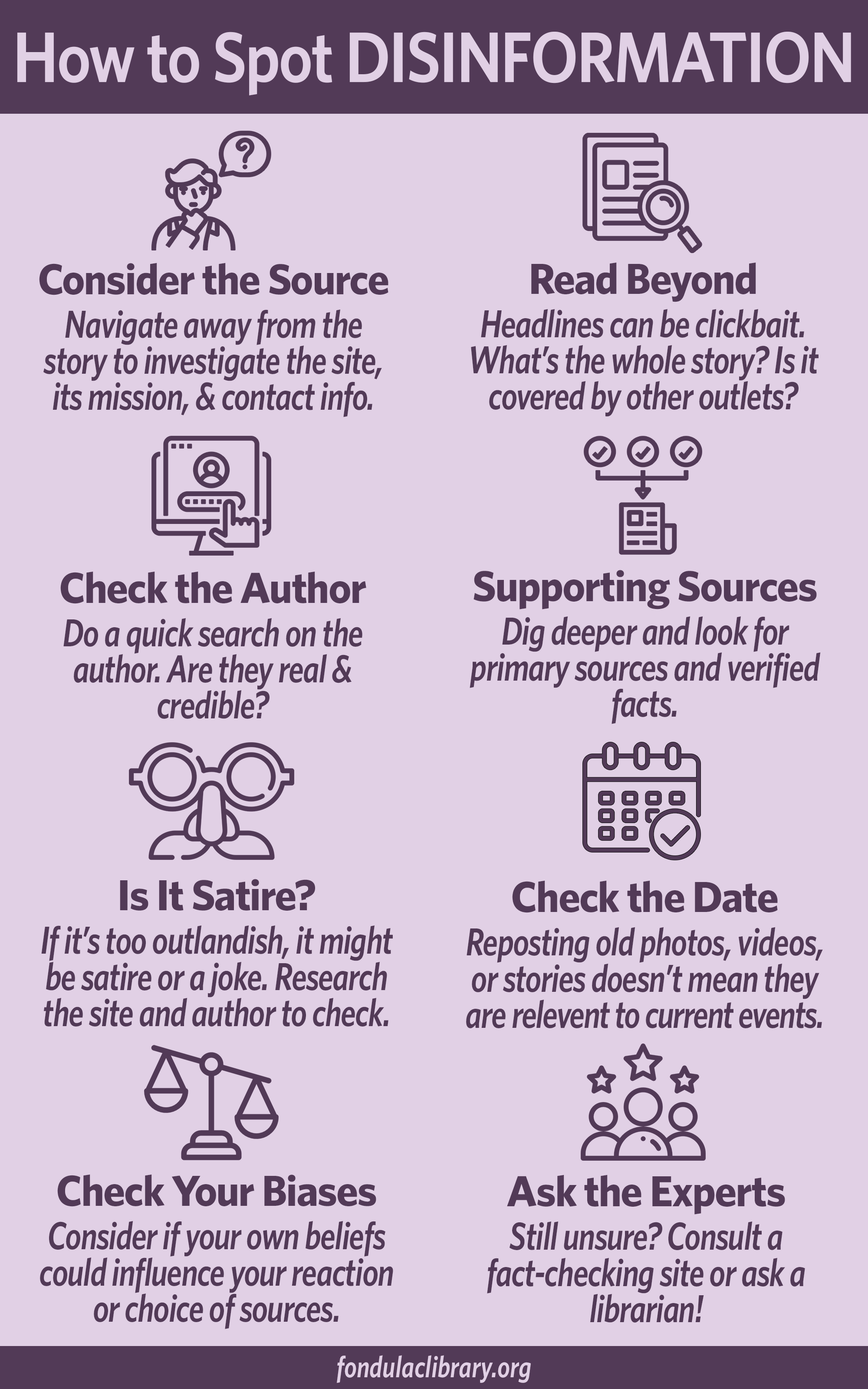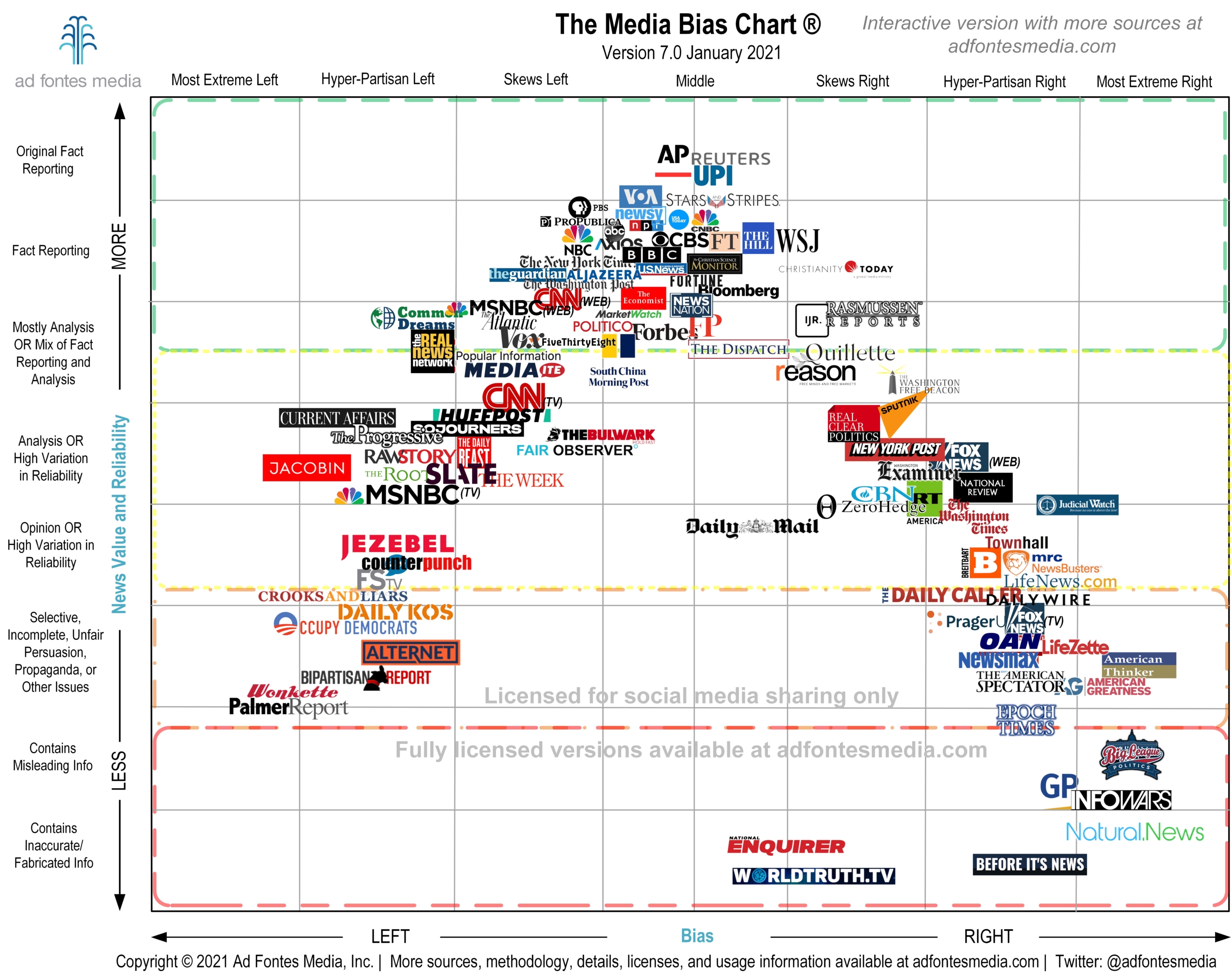 What is Media Literacy?
What is Media Literacy?
The National Association for Media Literacy Education (NAMLE) defines media literacy as the ability to access, analyze, evaluate, create, and act using all forms of communication.
Why is Media Literacy Important?
Technology continues to change how we access and interact with a constant, dynamic influx of information, news, entertainment, and social media. Media literacy is a crucial life skill in the digital era because it helps us navigate the increasingly sophisticated media that surrounds us on a multisensory level and influence the way we think, feel, and behave.
Becoming media literate empowers people to be critical thinkers and makers, effective communicators, conscientious consumers, and active citizens.
Disinformation 
The term Fake News has become politicized and is misleading when used by people to dismiss information they find disagreeable. Using the term fake news does not adequately capture the complex issue of disinformation.
Misinformation is false or inaccurate information created or spread without malicious intent.
Disinformation is false, inaccurate, or misleading information created and spread with the intent to deceive or cause harm, often for profit. Disinformation can also include content that blends false information with facts.
Disinformation has had alarming impact on public opinion, our trust of the media, and our understanding of democracy. Understanding what misinformation and disinformation are, how they differ, and how to identify them helps adults be more savvy news consumers.
Important Terms
Algorithms – A set of instructions to be followed, usually applied in computer code, to carry out a task. Algorithms drive content amplification and serve a very specific economic purpose: to keep you using the app or website in order to serve more ads.
Clickbait – Content that uses exaggerated, questionable or misleading headlines, images or social media descriptions to generate web traffic. These stories are deliberately fabricated to attract readers.
Confirmation Bias – The tendency to seek and prioritize information that confirms or aligns with one’s previous viewpoint and discount the opinions that do not.
Deepfakes – Realistic-looking but fake content created using artificial intelligence (AI) programmed to replace one person’s likeness with another in recorded video and audio.
Filter Bubbles – Intellectual isolation that results from information served primarily through search engines that filter results based on personalized data, creating a “bubble” that isolates the user from information that may not align with their existing viewpoints.
News Deserts – In many communities, local news outlets have been drastically cut or have disappeared altogether, leaving residents without a source for community news, including civic information such as local initiatives and ballot questions. This lack of community information has been linked to declining trust in news and government.
Fact-Checking Resources
BBC Reality Check –Part of the British Broadcasting Company (BBC) that checks facts for news stories.
FactCheck – This nonprofit, nonpartisan site from the Annenberg Public Policy Center also checks the accuracy of political claims and news stories.
First Draft – A nonpartisan coalition of journalists, academics, and NGOs that investigate and verify emerging stories.
Open Secrets – Nonpartisan, independent, and nonprofit, the Center for Responsive Politics is the nation’s premier research group tracking money in U.S. politics and its effect on elections and public policy.
PolitiFact – This nonpartisan, Pulitzer Prize-winning site researches claims from politicians to check accuracy.
Snopes – One of the oldest and most popular debunking sites on the internet that focuses on news stories, urban legends, and memes.
Sunlight Foundation – A nonpartisan, nonprofit organization working to make government and politics more accountable and transparent. Its Web Integrity Project monitors changes to government websites — revealing shifts in public information and access to Web resources, as well as changes in stated policies and priorities.
Reliable News Sources
Explore local and regional news sources and the most comprehensive collection of national news, including Peoria Journal Star, State Journal-Register, USA Today, and more with Newsbank and your FDL card at fondulaclibrary.org/research/#newsmagazinesjournals!
Associated Press – AP is an independent international news service operating in 250 locations worldwide. Founded in 1846, AP shares its news in 150,000 news outlets, with subscribers from across the globe.
British Broadcasting Corporation – The BBC is a public broadcasting service based in London. Established by royal charter in 1926, the BBC publishes news on television, radio, and online.
National Public Radio – Incorporated in 1970, NPR is an independent, nonprofit media organization based in Washington, D.C. with dozens of news bureaus worldwide, providing news to more than 260 member stations that, as independent entities, own and operate about 1,000 stations nationwide.
Public Broadcasting System – PBS is a nonprofit public broadcaster and distributor of educational television, with daily, trusted news coverage during PBS NewsHour.
ProPublica – ProPublica is a nonprofit organization based in New York City that aims to produce investigative journalism in the public interest.
Roll Call – Roll Call is a newspaper and website dedicated to coverage of the U.S. Congress, focusing coverage on elections, politics, and policy.
Reuters – Reuters is a trusted international news organization founded in 1851 and one of the largest news agencies in the world.
United Press International – UPI is an international news agency founded in 1907 and information to millions of readers around the globe.
Additional Media Literacy Resources
The Foundation for Critical Thinking

